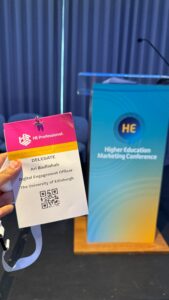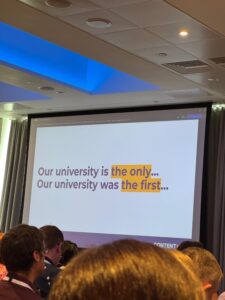Higher Education Marketing Conference 2025
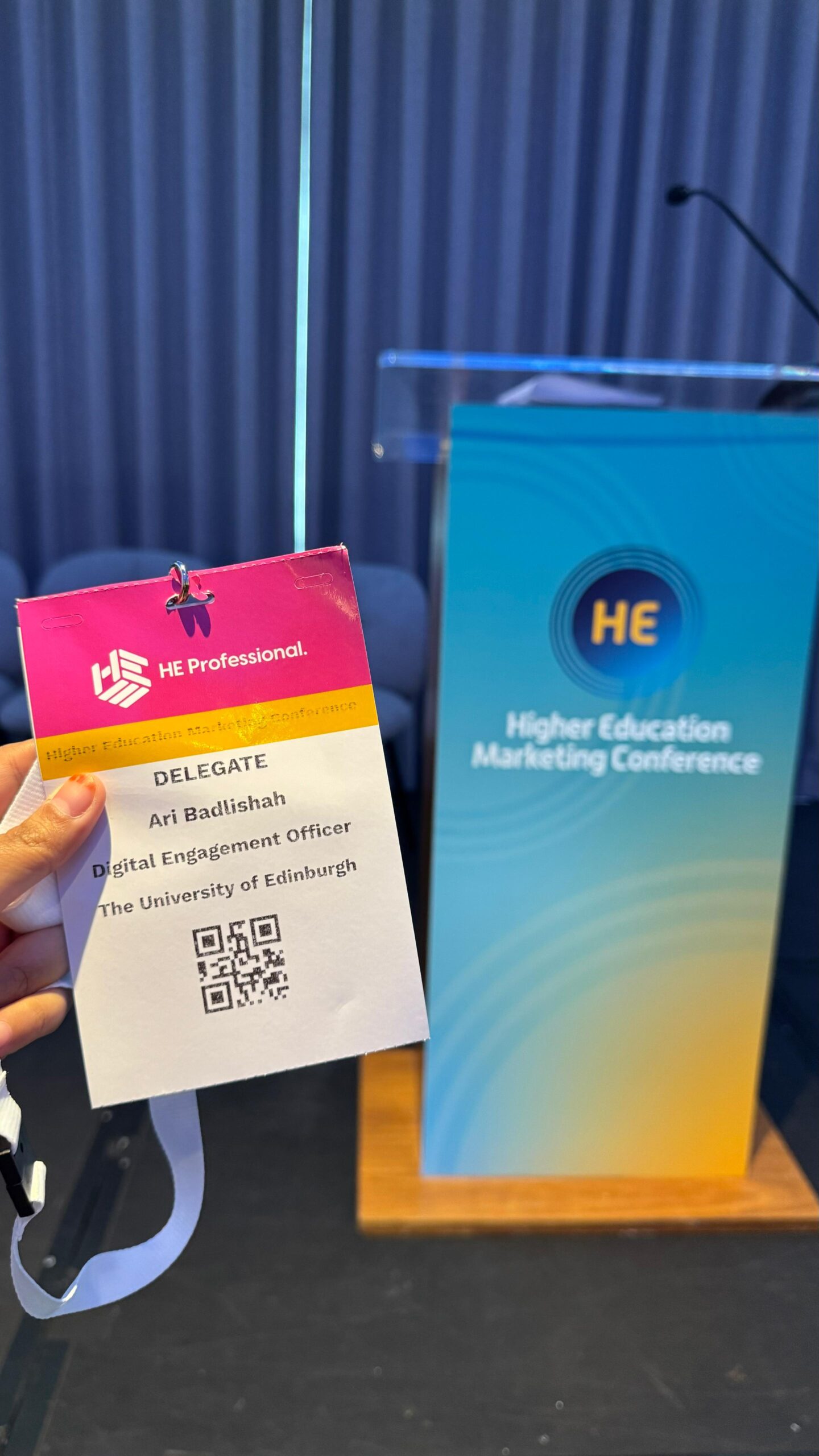
On the first day of July this year I had the pleasure of attending this year’s Higher Education Marketing Conference, run by HE Professional. It was a day packed with insights about higher education marketing from industry leaders, with a good mix of plenary talks and breakout sessions, and as my colleague Scott mentioned last year, full of amazing food – it had the fanciest breakfast spread I’d ever seen at a conference!
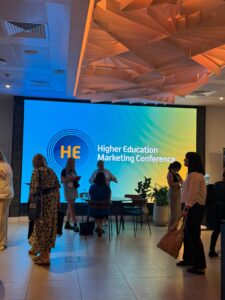
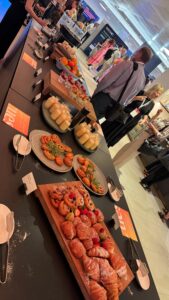
In the morning I headed to the bustling Liverpool Street, a prominent financial district of London full of busy professionals rushing to their offices, morning coffee in hand. While it was pretty fun cosplaying as a “London corporate girlie” and it reminded me of my brief stint working in central Kuala Lumpur, I must say I will not miss being squashed like sardines on the Tube. However, seeing the Gherkin among the other skyscrapers outside the conference venue genuinely took my breath away. My younger self would be pinching herself if she heard that she’d get to attend a conference here someday, that this is a space she gets to enter!
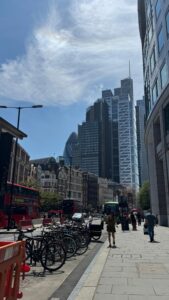
Now, before I get into the conference details… for context, my job is to promote postgraduate online programmes.
The conference started with a Chair’s Introduction and Kickoff from Lizzie Burrows (Imperial College London), followed by a talk on “Adding Value” from Paul Woods (LSBU). Martyn Edwards from the University of Leicester spoke about the importance of “Belonging” – how important it was for students to feel accepted among their university community. There was also a panel session on “Driving Sustainable Growth and Building Brands”.
The star of the plenary talks for me was by Tracy Playle from Pickle Jar Communications, where she talked about distinctiveness in higher education marketing and even had a hilarious bingo game for common marketing terms (how many of us use the terms “world-class research” and “vibrant student community””???). She then also shared some useful frameworks on how to differentiate one’s institution. Tracy also gave some useful advice on stripping back, decluttering marketing, rather than simply adding more.
After a very delicious lunch, there were a few breakout sessions. One that really stood out to me was Steve Male from Keele University who talked about Generative AI in higher education marketing. He shared several useful case studies, including using AI to optimise websites, to check marketing copy against the new CMA legislation, and analysing qualitative data from entrant/decliner surveys.
The conference ended with a few afternoon plenary sessions. The highlight for me was when UCAS brought out a panel of school leavers to talk about their experiences at UCAS Open Days and engaging with university booths. Even though I don’t market to undergraduate audiences myself, I thought it was such a unique and different way to do a conference session – hearing from the targeted customers themselves! It made the audience burst out in laughter when the panel members kept mentioning pieces of free merch they appreciated, but they didn’t remember which universities they were from.
Some insights I found most valuable from the conference:
- People are actively using AI/ChatGPT to research and compare universities, so it is important to make sure websites are optimised for AI and SEO
- Look overseas for marketing inspiration – don’t just look at local UK universities
- Marketers need to “be the architect, not just the decorator”. We should lead the conversation and help shape experiences for students
- Important to give prospective students realistic expectations: “University is hard, it may be a struggle, but we have support”
- Education costs a ton for international students (can be 3x the cost of studying locally), and perhaps should be marketed as a luxury product
- Many students nowadays doing their research on universities via TikTok or Instagram – desire to see it visually
During the conference I got to network with my colleague Jannika from the School of History, Classics, and Archaeology – wonderful to be able to talk face-to-face as many MarComms staff work in different buildings and don’t get to meet much physically. I also chatted to several vendors. I would definitely recommend this conference to other colleagues, although I did feel like it had a slight undergraduate focus and would love to see more postgraduate-leaning sessions in the future. Would be even better if there was a session focusing on online study!
